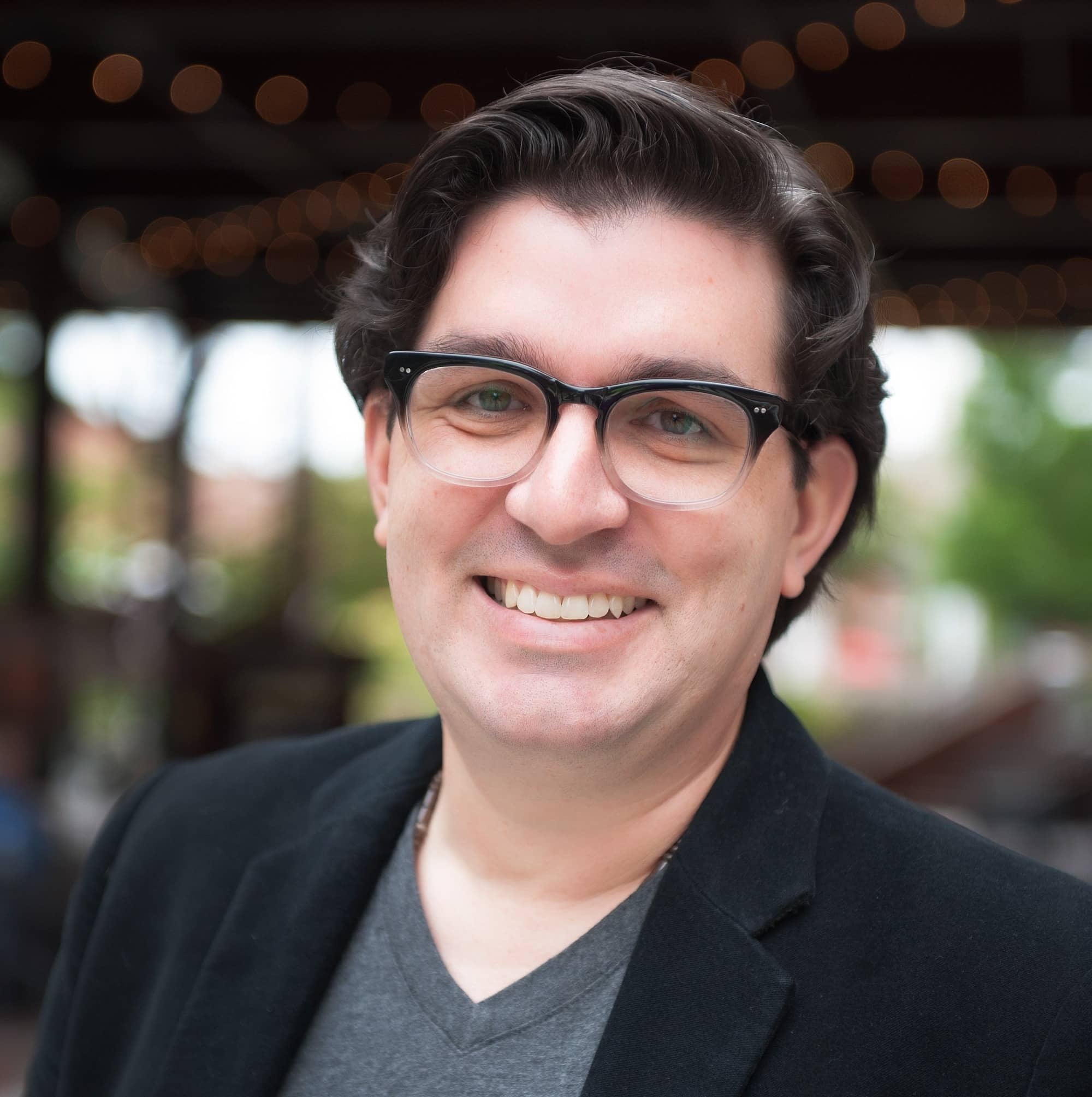The lecture begins a few minutes later with Brook introducing himself as our instructor. Soon after, we’re introduced to Dexter, Brook’s assistant. Ditto for our TAs, Scott and Paul, and Code Fellows’ support staff.
Now it’s time for the students’ introductions. Like the rest of my classmates I need to share the following information: my name, where I live, my occupation, my biggest strength, my biggest weakness, and the nerdiest thing about me.
After an hour of listening to my classmates’ diverse backgrounds, it’s my turn to share a little bit about myself. I can’t remember the last time I heard my voice shaking due to nerves. Perhaps that’s because I need to share my nerdiest moment with a room full of strangers.
“The nerdiest thing about me is that I’m here right now with all of you. I left my wife and children in North Carolina so I can spend a month learning how to code.”
I sit down, exhale, and enjoy a brief reprieve from my nerves.
The first five days of the Computer Science & Web Development Bootcamp were intense. Lectures in the morning. Lab assignments in the afternoon. Homework at night.
The first three days were full of JavaScript. We dove into the deep end learning about methods, objects, functions (anonymous and built-in), arguments, arrays, hoisting, constructors, expressions, prototypes, and operators. Since I had no prior experience with JavaScript, I struggled to keep up with all of the terms and definitions.
Our first lab assignment was to create a guessing game where the user provides basic inputs that generate a collection of outputs. I created a game called The Unofficial Shred-A-Rator Index. The user is prompted to provide information about their experience playing the guitar (i.e., years played, number of bands and gigs) and the output tells the user his or her level of experience as a guitar player.
The labs for the remainder of the first week built upon our games. On Tuesday, we were paired with another classmate and worked in tandem to add functions. On Wednesday, we created objects and methods. On Thursday, we introduced HTML into our game. And on Friday, we were introduced to the DOM (Domain Object Model), a cross-platform and language-independent convention used for representing and interacting with objects.
Each day involved pushing and pulling between our local repositories and GitHub. I successfully managed to jack up my files every day as I navigated the intricacies of version control and a web-based Git repository hosting service.
There’s no way to sugarcoat it: I struggled during the first week of bootcamp.
Attending a Code Fellows Bootcamp is undoubtedly a full-time commitment. Unfortunately, I wasn’t able to completely leave my day job (contracts manager) behind in North Carolina. I’ve had to keep up by working whenever I have a free moment and, as I learned this past week, free moments are hard to come by.
Here’s what a typical day looked like during Week 1 of Bootcamp:
5:30 AM: Wake up, coffee, breakfast, shower.
6:15 AM: Work on day job tasks.
7:30 AM: Take bus to Code Fellows.
8:00 AM: Work on day job tasks at Code Fellows.
9:00 AM: Lecture at Code Fellows.
12:00 PM: Eat lunch from nearby SLU eatery or delivered by Peach.
12:15 PM: Call home to speak with wife and children.
12:30 PM: Lab assignment at Code Fellows.
5:30 PM: Commute back to house.
5:50 PM: Call home to say goodnight to children.
6:00 PM: Run 5k, shower.
7:00 PM: Eat dinner delivered by Munchery.
7:30 PM: Work on Code Fellows homework assignment.
9:30 PM: Work on day job tasks.
11:30 PM: Go to sleep.
I knew Bootcamp was going to be difficult. However, I can confirm that Bootcamp is more challenging than I anticipated. The pace is faster and the expectations are higher. I planned on working my day job for 10 hours per week, but I logged 22 hours during the first week.
My biggest concern is that I’m comparing myself to my classmates and they have a better understanding of the material. I’m trying my best to remain positive and upbeat, but it’s challenging when you’re surrounded by people who are having more success with the coursework and assignments.
I’ve spent the past twenty years of my professional life being paid to do things that I not only know how to do, but that I do well. I’ve picked up new skills along the way, but those skills didn’t require me to stretch too far. Now I find myself trying to keep up within a completely new industry.
I’m mentally drained after a full day at Code Fellows, so I try go for a run in the evening to clear my mind. As I pass the bungalows and gardens throughout northeast Seattle, I remind myself not to be too hard on myself. I remind myself that struggling is a part of the learning process. I remind myself that Brook, Dexter, Scott, and Paul are there to help me. I remind myself that my classmates are kind and willing to help one another. I remind myself that my wife and children are rooting for me. And that’s all the reason I need to keep going.
This is Part Two of a five-part series documenting Gino Bona’s journey as he learns how to code. You can read Part One here. See the original post on Gino’s blog.

